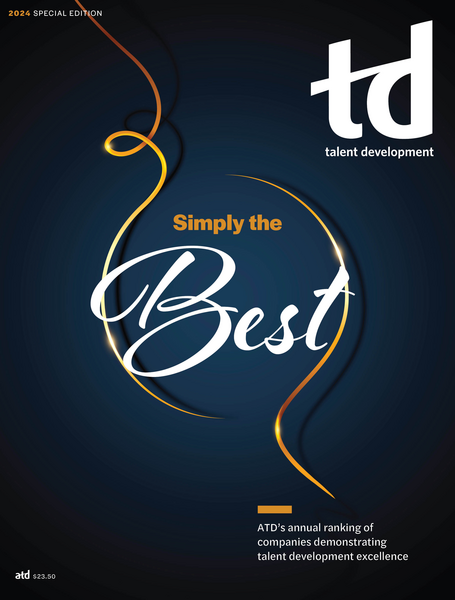TD Magazine Article
Member Benefit
Peak Performance
Implement creative performance management strategies to evaluate, train, and retain key employees.
CU
By
Fri Jun 14 2024

Bookmark
Implement creative performance management strategies to evaluate, train, and retain key employees.
You've Reached ATD Member-only Content
Become an ATD member to continue
Already a member?Sign In

More from ATD




